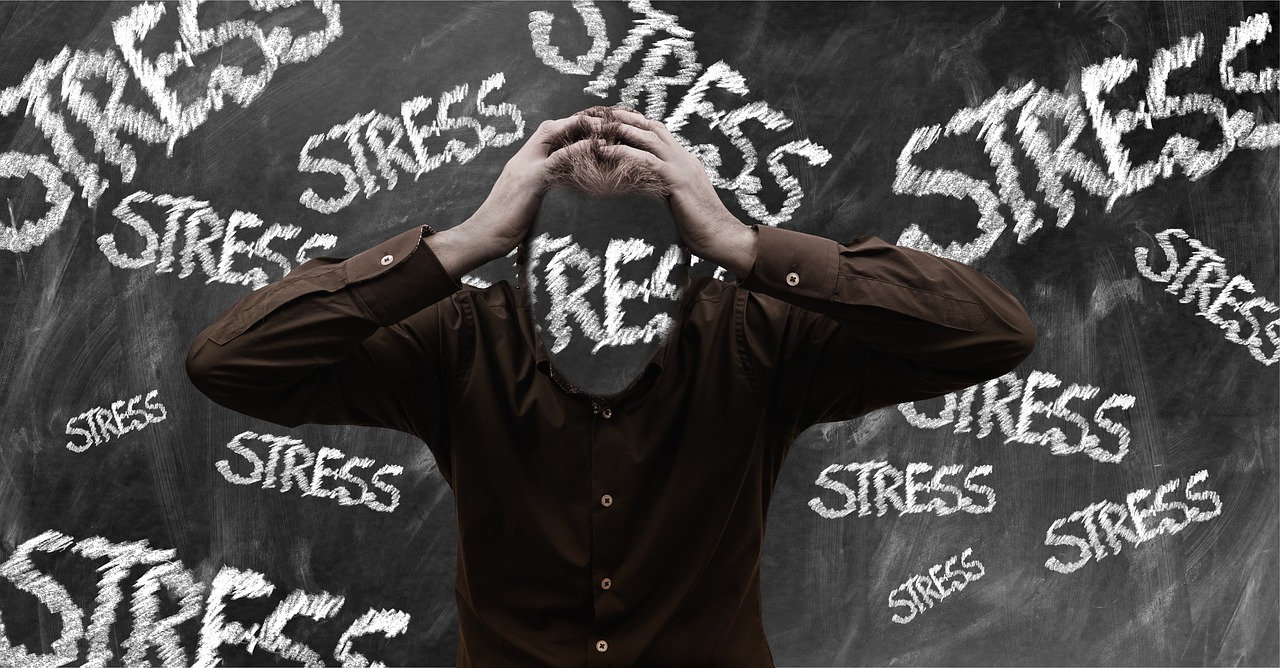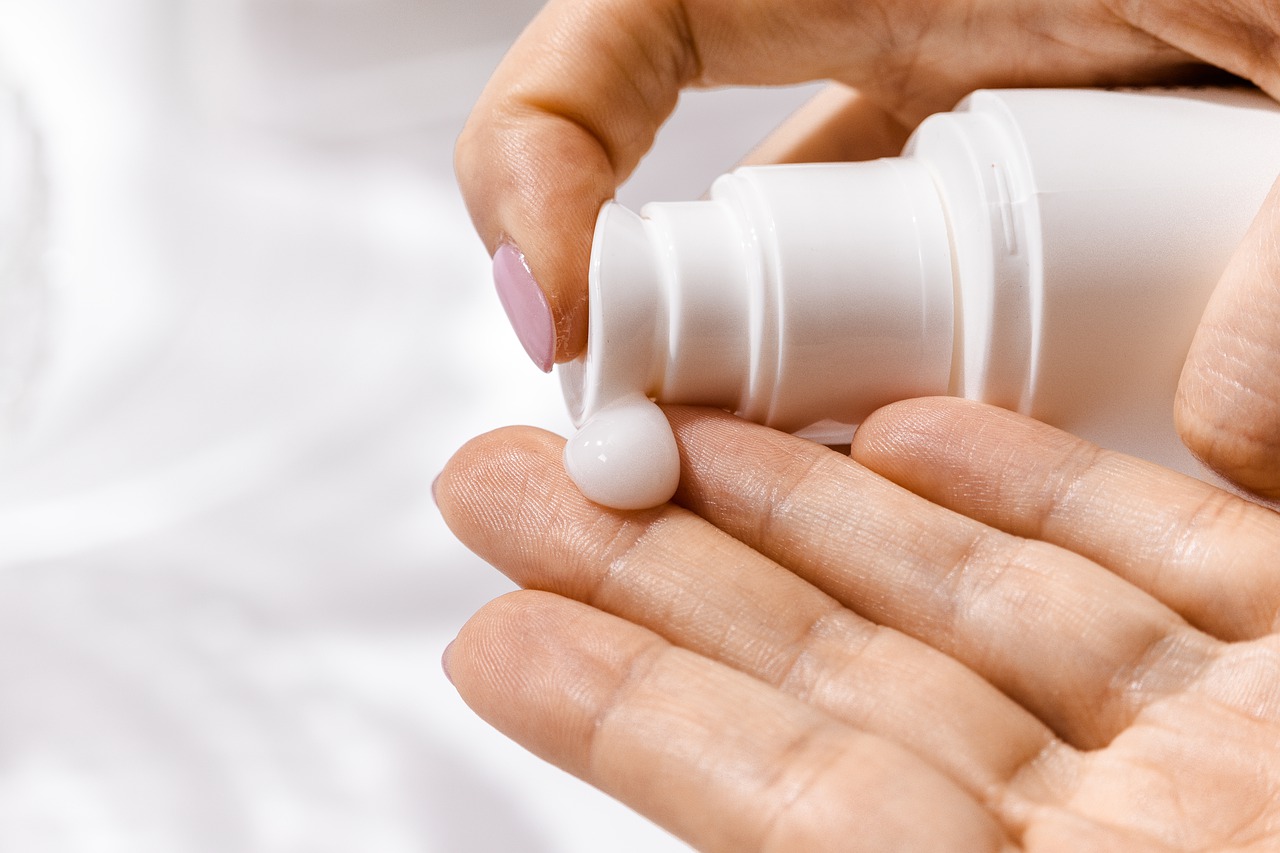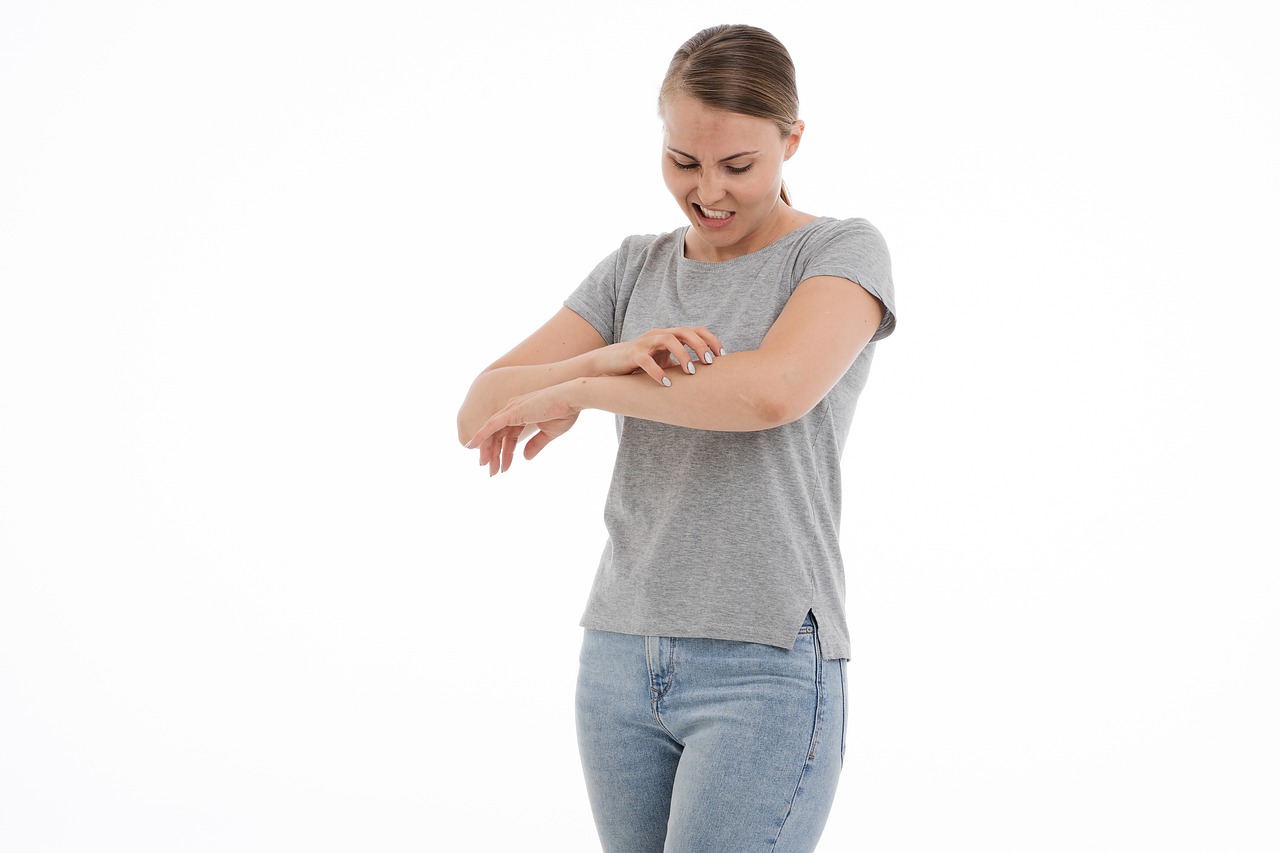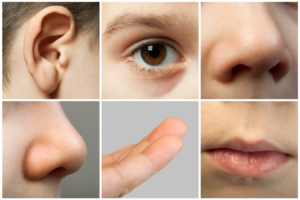Some skin conditions can manifest as a reaction of the body to stressful situations. A good example of this is reddish hives.
Although many times the origin of these hives can be due to an allergic reaction, recent studies have confirmed that stress and anxiety can also be triggers for these rashes.
In the following article, we will learn a little more about these hives and how they can become an indication of present stress.
Hives: the main sign of urticaria
In medical terms, reddish hives that appear on different parts of the body are a clear symptom of urticaria. This is a dermatological condition that usually tends to manifest itself as an allergic reaction to certain external agents.
Among the most common triggers of this condition are certain foods and drinks. Shellfish, aged cheeses, and, above all, most of the chemical preservatives that are so common in processed foods, tend to top the list of causative agents.
However, these are not the only external elements that can cause the appearance of reddish hives on the skin.
Another very common cause of hives outbreaks is UV rays. This tends to occur very frequently in patients with very sensitive skin.
Clinically speaking, hives outbreaks can be divided into two different categories. These are determined by the duration of the hives and the itching sensation experienced by the patient.
First, there is mild urticaria. The hives associated with the disease appear in different areas of the body and then disappear after a short time.
Then there is the so-called chronic urticaria. In these cases, the hives can remain on the patient’s skin for weeks. They produce a constant itching sensation in the affected area that the person can experience for days or even months.
Knowledge of the symptoms of hives and their early detection is very valuable for everyone. This makes it much easier to know when it is necessary to consult a specialist.
Main causes of hives
It is common to think that the presence of reddish hives on the skin is an obvious symptom of a possible allergic reaction.
Generally, this type of skin condition manifests as a consequence of a chemical reaction of our immune system to some external compound or agent.
A classic example of this type of allergic reaction can often be seen in people who are allergic to certain proteins present in shellfish or dairy products.
Since these types of foods are full of protein complexes that the immune system is often unable to fully synthesize, causing red bumps to form on the skin.
In the most severe cases, the inflammation resulting from this immune system reaction can cause the person to have difficulty breathing properly.
For this reason, doctors recommend that at the first sign of hives, it is advisable to eliminate this type of food from our diet.
However, red bumps on the skin are not necessarily a symptom of an allergic reaction. Therefore, the first thing doctors recommend is to perform toxicology tests and blood tests.
Well, as we have already seen, there are many possible triggers for an outbreak of hives.

Something that must always be kept in mind is that when it comes to allergic reactions, they will always manifest under the same conditions.
This means that the best thing to do in these cases is to remain attentive to what we do during the day. This way we will be able to provide our doctor with crucial information to find the cause of the allergy.
There are cases where red hives appear spontaneously and without any common pattern that allows them to be associated with an allergic reaction. It is precisely at this point that stress begins to be considered as a possible trigger.
The relationship between stress and hives
Recently, scientific studies have confirmed that conditions such as stress and anxiety can be triggers for the appearance of hives on the skin.
The data confirm that exposure to emotionally draining situations can have serious repercussions on an individual’s overall health.
Migraines, frequent stomach aches, and even sporadic outbreaks of hives on specific parts of the skin can be symptoms that stress is wreaking havoc on our bodies.
Nowadays, many people have learned to live with a certain level of stress in their daily lives. However, recently, much more attention has begun to be paid to the consequences that stress has on general health.
For this reason, many experts in the field have classified stress as a key trigger for many diseases.
And if we seriously consider our current lifestyle, this statement is not without meaning.
The fast-paced lifestyle and constant pressures people are subjected to make them tend to be a little more careless, especially when it comes to food, rest, and exercise.
All this has triggered a social phenomenon that is increasingly gaining more notoriety and acceptance in public opinion.
Not only are people now more aware of the negative effects of stress on their health, but many are also more willing to make the necessary changes in their lives to enjoy a healthier life.

How do we know when stress is affecting us?
One of the main characteristics of stress is that the health problems that can arise as a result of it are extremely varied.
However, we must never lose sight of the fact that all of these ailments respond to the same key pattern. Therefore, even we can make a preliminary diagnosis of how stress is wreaking havoc on our health.
A very valuable fact regarding the ailments directly associated with stress is that they arise as a consequence of our lifestyle.
This means that to know if our illness is associated with stress levels, we must be more aware of our environment and how certain situations associated with it affect us.
Stomach pain, muscle pain, back pain, and pain in the front of the head are among the most common illnesses associated with stress. But this does not mean that they are the only ones.
It has recently been found that some people with very high levels of stress may develop hives on their skin, which are very similar to those that fit the description of a mild allergy.
For this reason, it is common for many dermatologists to tend to point to stress as the cause of hives.
All of this arises as a consequence of hormonal alterations in the body that are produced by the chemical changes caused by stress.
Possible complications to watch out for
As with allergies, stress hives cause an itchy sensation that can cause enormous discomfort to the patient. In the most extreme cases, patients are unable to perform certain daily activities such as working or sleeping properly.
When we begin to notice the appearance of this type of spot on our skin, the first thing we must avoid at all costs is succumbing to the temptation of scratching.
This is because the skin under the nails tends to accumulate a lot of dirt and dust. Therefore, scratching the affected area risks causing an infection.
A smarter and more effective way to deal with that itch is by using natural ointments that have moisturizing properties.
These not only provide considerable and long-lasting relief from the itching sensation caused by hives; they also help to considerably reduce their size.
Another treatment recommended by specialists is the use of over-the-counter antihistamines. These types of compounds contain ingredients such as hydroxyzine or loratadine, which help reduce inflammation and eliminate any itching sensation.

But as we pointed out earlier, stress-related illnesses are deeply linked to our habits.
This means that there are easy ways to relieve hives and the sensation they leave behind without having to resort to medication.
Something that could be of great help is taking a relaxing bath and scrubbing the affected area with a soap made from natural ingredients. The warm water will help the itching sensation disappear almost immediately.
Frequently wearing tight clothing made from synthetic fabrics is not recommended for the skin. Natural fabrics always leave a much more pleasant feeling, and they also help us feel fresher and more relaxed.
The best treatments for stress hives
To treat any illness caused by stress, the first thing is to learn to identify which element of our daily life causes our blood pressure levels to rise.
To do this, we need to pay attention to all those habits that are part of our daily routine, and at the same time, we are aware that they are harmful.
An important fact about hives caused by stress is that many times the itching sensation is not as bothersome as that produced by urticaria.

Another important point to take into consideration is how often we feel the need to scratch the hives.
If the urge to scratch is so frequent that it sometimes prevents us from concentrating on simple tasks, the discomfort is likely more due to accumulated stress than to the rash itself.
One way to control this is to moisturize the affected area with a moisturizing cream and perform some deep breathing exercises.
The itching sensation can also be controlled by gently cleaning the area with a damp cloth.
When skin rashes become more frequent, it may be best to make an appointment with a dermatologist to clear up any doubts.
Although the specialist will always choose to wait to know the results of the tests before ruling out the possibility of an allergy, it is natural that during the consultation, he or she will conduct a short interview about our daily life.
When talking about hives on the skin, the doctor treating us needs to know as much as possible about our lifestyle.
As a good specialist in this area, he knows that hives caused by exaggerated levels of stress are extremely common, especially in patients who are very sedentary and have poor eating habits.
Conclusion
Stress and anxiety are the causes of many of the most common ailments within the population.
Hives on the skin are just one of the many symptoms that a person can experience when they are unable to keep their stress under control.
But we must not lose sight of the fact that stress-related illnesses are a product of our lifestyle. Therefore, the most efficient solution to these problems is to start integrating healthier habits into our daily lives.
Although it must be made very clear that in the modern world, this is not very easy to do, the truth is that when we talk about healthy living, we do not necessarily have to make a 180° turn in our routine.
A good start towards change can be trying to reduce our intake of processed foods as much as possible.
The Internet is full of recipes that are very quick to prepare, much healthier, and incredibly delicious if done properly.
Exercise is also another key point to take our first steps towards a healthier life. Walking around the block for 15 minutes every day is more than enough to oxygenate the brain and get the circulatory system working.
It is not easy even for a skin specialist to know whether hives are caused by stress or a symptom of an allergy.
And when it comes to these types of skin abnormalities, the most reliable source of information is ourselves.
When we notice reddish bumps on some part of our body, the first thing we should do is review what we did before they appeared. This will help us get an idea of what the root of the problem could be.
If you have sensitive skin, it is important to always have products such as moisturizers and sunscreen on hand to protect yourself from UV rays.
It is usually natural for hives on the skin caused by stress to tend to disappear after a few minutes.
But things start to get a little more worrying when they start appearing frequently and the itching is so bad that it prevents you from working or sleeping at night.
This is where consulting a dermatology specialist might be your best option.
If there is one thing that is very clear to us after all this information, it is that we should never doubt the power that emotions have over our health.
Every day we gain more knowledge about how stress can become harmful to our health when we do not control it properly. All of this leads us not only to be more careful with what we do but also to learn to give ourselves the care we deserve.






















+ There are no comments
Add yours